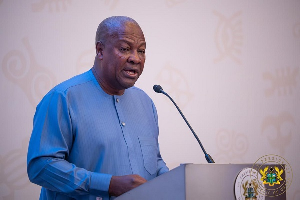Trudi Hartzenberg, Executive Director of the South Africa-based public benefit organisation Trade Law Centre (tralac), has urged African economies to build diversified productive capacity across agriculture, industry and services to drive the growth of the continent post-COVID-19.
She said the absence of such capacity, coupled with high cost of doing business and poor systems for efficient cross-border trade, remain critical factors that inhibit intra-Africa trade.
“A fundamental problem facing most African countries is their inability to develop a diversified production capacity across agriculture, industry and services, and these issues have gained more attention during the pandemic. There are many policy discussions that suggest that what we need to focus on, as a continent, is to develop our capacity to produce more essential products—medical equipment, food [and] agro-processing,” she said.
Ms. Hartzenberg was speaking as a panelist on a webinar organised by Wesgro, the official tourism, trade and investment promotion agency for Cape Town and Western Cape, in South Africa, on the theme, “The Future of Africa Regional Integration—Post COVID-19”.
According to her, the African Continental Free Trade Area (AfCFTA) is an ambitious initiative that requires coordinated and collective actions towards regional integration of the continent.
For it to succeed, she called for the harmonisation of regulations and introduction of tech-based solutions by member countries, taking a cue from some recent pandemic-induced innovations.
“Digital trade solutions which have been deployed by most countries amid the pandemic could become a permanent standard to help reduce transaction costs and save time at border posts as well as facilitate trade in a far more efficient way,” she said.
Co-panellist Frans van der Colff, an entrepreneur and director of Fruit & Veg City, was of the opinion that there is huge potential on the continent, in spite of Covid-19, and urged African countries to begin working together.
To him, the crisis brings opportunities and there might be more potential at the moment, but realising those potentials would require a united continent.
“We need to change the mindset and begin to work together as a continent because that’s the only way the continent can succeed and become the superpower it’s supposed to be. It is not easy to trade between countries at the moment and it’s exceptionally expensive and, for the future of the continent, we need to address these things fairly quickly,” he noted.
Intra-Africa trade now hovers around 15 percent, which, Mr. Colff admitted, was very minimal compared with trade with other blocs, adding that every discussion should be to increase trade among African countries.
But for that to happen, he suggested that respective governments will have to facilitate processes of trade and make it easier for businesses to operate.
“Across the continent, there is difficulty in moving goods across borders as a result of enormous bureaucracies and we [investors] cannot set up businesses and run them efficiently if we have to live with these constraints,” he said.
In advising entrepreneurs and investors of the continent, Mr. Colff asked them to respect the countries they operate in, build capacities of their people, and ensure to create areas of prosperity.
“That means we can’t simply do the business and pull all the money out,” he emphasised, warning that trading in Africa is not a short-term plan but for the long haul.
“You can’t have a six-month to two-year plan and make money and pull out. It’s a 10-year plan and we set out a long-term plan that seeks to build prosperity and sustainability for the continent.”
Africa Business News of Monday, 6 July 2020
Source: thebusiness24online.net












